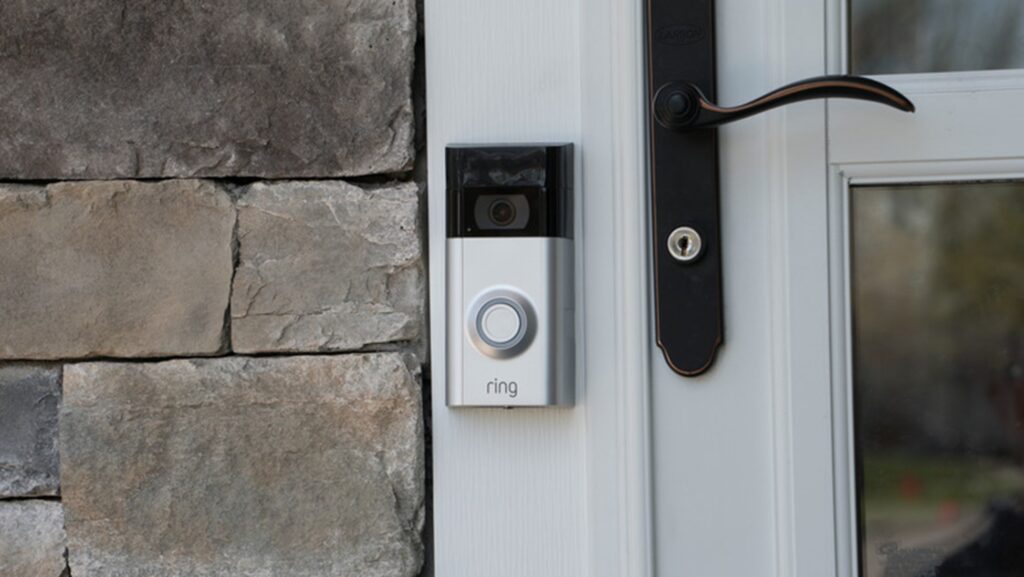
How to Tell if Your House Is Bugged: Insights from a Private Investigator

How to Tell if Your House is Bugged
In today’s world, where technology is advancing rapidly, the threat of hidden surveillance devices in our homes is a growing concern. Feeling secure in your personal space is essential, and understanding how to detect if your house is bugged can help maintain your peace of mind. This article dives deep into practical methods for identifying hidden surveillance equipment, from listening devices to hidden cameras, ensuring your privacy remains intact.
Understanding the Threat
What Does It Mean to be Bugged?
Being bugged refers to unauthorized surveillance, where hidden devices, such as microphones or cameras, are used to eavesdrop on private conversations or monitor activities. These devices can be placed in various locations within your home or office, compromising your privacy. Understanding the potential threat is the first step in protecting yourself from unwanted intrusions.
Common Types of Surveillance Devices
Surveillance devices come in various forms, including listening bugs, hidden cameras, wiretaps, and more. Listening bugs are small microphones that can capture conversations, while hidden cameras record video footage. Wiretaps often involve intercepting phone communications. Each device serves the purpose of gathering information without the subject’s knowledge, making them particularly invasive.
Signs Your House Might Be Bugged
Unusual Noises and Sounds
When your house is bugged, you may notice strange noises. These can include static or clicking sounds on your electronic devices, which may indicate the presence of a listening device. Other times, you might hear odd sounds coming from walls or ceilings, suggesting hidden devices.
Static or Clicking on Electronic Devices
If you experience interference during phone calls or notice strange noises when using your electronic devices, it could be a sign of a listening bug. These devices often emit radio frequencies that interfere with your electronics, causing unexpected sounds.
Strange Sounds from Walls or Ceilings
Hidden cameras or microphones can sometimes produce faint buzzing or clicking sounds. Keep an ear out for noises that seem out of place, especially when your home is otherwise quiet.
Unexpected Interference
Unexpected interference with your electronic devices, such as Wi-Fi disruptions, can be another indicator of surveillance devices. If your radio or TV suddenly experiences signal issues without any apparent cause, it might be time to investigate further.
Wi-Fi and Electronic Device Disruptions
Surveillance devices often rely on wireless signals, which can interfere with other devices in your home. If you notice frequent disruptions or degraded performance, it could be a sign that your house is bugged.
Radio and TV Signal Issues
Just like with electronic devices, interference with your radio or TV can also suggest the presence of hidden surveillance equipment. Pay attention to any anomalies in your usual signal reception.
Physical Signs of Intrusion
Physical signs can also indicate that your privacy has been compromised. Look for displaced furniture, tiny holes in walls, or other marks that suggest tampering.
Displaced Furniture and Items
Intruders may not always be able to replace moved items exactly as they were. Noticeable shifts in furniture or other items can be a red flag for hidden devices.
Tiny Holes or Marks on Walls
Surveillance devices often require small holes or alterations in walls and ceilings. If you spot unexplained marks or holes, it’s worth investigating further.

5 Signs to Tell If Your House Is Bugged
Suspecting that your home has been bugged can be challenging, especially when it comes to protecting your privacy and security. Here are five warning signs to look out for. First, if you notice unusual interference with your wireless devices, it could indicate the presence of hidden listening devices.
Second, a sudden increase in unexplained phone calls or messages might suggest someone is trying to gather sensitive information. Third, using a bug detector or rf scanners to detect wireless signals can help you identify hidden bugs. Fourth, if you see flickering lights or hear strange noises, this might be a sign of active listening through hidden microphones. Finally, searching for hidden video or cameras and listening devices in common areas can reveal potential surveillance equipment.
If you find any of these types of bugs, it’s crucial to take immediate action. Employ counter surveillance tools and consider hiring a professional bug detection service to thoroughly search for hidden devices.
Remember, the presence of surveillance devices without your knowledge is not only a violation of trust but can also put your safety at risk. Protecting yourself and your loved ones should be a top priority, so stay vigilant and proactive about your home’s security.
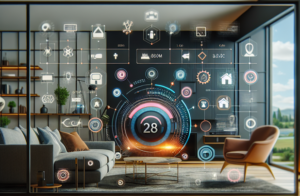
How to Detect Bugs in Your Home
Physical Inspection Techniques
Conducting a thorough physical inspection of your home is a crucial step in detecting hidden devices. This involves checking common hiding spots, such as behind furniture or in smoke detectors, for any signs of tampering.
Checking Common Hiding Spots
Places like electrical outlets, light switches, and smoke detectors are prime locations for hidden spy devices. Be diligent in inspecting these areas for unusual modifications.
Inspecting Electrical Outlets and Fixtures
Surveillance equipment can be cleverly concealed within electrical outlets and light fixtures. Look for any signs of tampering, such as disturbed screws or misaligned switch plates.
Using Technology to Your Advantage
In addition to physical inspections, using technology can significantly aid in detecting surveillance devices. RF detectors and bug sweep tools are particularly effective.
RF Detectors and Bug Sweep Tools
RF detectors can identify radio frequencies emitted by hidden devices, helping to pinpoint their location. Conduct regular sweeps of your home to ensure there are no unwanted devices transmitting wireless signals.
Anti-Spyware Software for Electronics
Installing anti-spyware software on your electronic devices can help detect and neutralize any malicious software that may have been used to compromise your devices.
What Are Listening Bugs And Wiretapes?
Listening bugs and wiretaps are covert devices designed for eavesdropping on your conversations. These bugs are typically small, often disguised as everyday objects like pens or hidden cameras, making them difficult to detect.
They can transmit audio signals using rf frequencies, allowing unauthorized individuals to capture conversations without your knowledge. This illegal surveillance poses a threat to your privacy, especially if wireless devices in your home are compromised.
Finding listening devices and bugging devices in your house can be challenging, but it is possible to detect them with the right equipment to detect such intrusions. There are various methods and tools available that can help detect hidden spy devices and ensure peace of mind.
Maintaining a secure environment is crucial, and understanding how to use listening bugs and audio bugs can assist in safeguarding your personal space.
Professional Help and Precautions
When to Hire an Expert
If you suspect your home is bugged and you’re unable to locate the devices yourself, it might be time to hire a private investigator. These professionals have the tools and expertise to conduct a thorough bug sweep of your property.
Legal Considerations and Privacy Laws
Understanding the legal implications of surveillance is also important. In many regions, unauthorized surveillance is illegal, and knowing your rights can help you take appropriate action if you find hidden devices in your home.
The Psychological Impact of Being Bugged
Stress and Anxiety
Realizing your home may be bugged can cause significant stress and anxiety. It’s crucial to address these feelings and take action to restore your sense of safety and security.
Protecting Psychological Well-being
Maintaining psychological well-being involves staying informed about potential threats and knowing when to seek help. Consulting with professionals can provide reassurance and guidance.
Enhancing Home Security
Technological Security Measures
Implementing advanced security measures, such as updated anti-virus software and secure Wi-Fi networks, can help protect against surveillance attempts.
Physical Security Enhancements
Consider installing additional locks, security cameras, or alarm systems to deter potential intruders and enhance overall home security.
How to know If Your House Is Bugged.
I have covered the possible perils of hidden smart cameras in our home many times already, but now that we are living in a world where technology is increasingly gaining sophistication, so also the scare of always being watched with hidden surveillance systematically planted all over.
It is a natural feeling; security in your own space and knowing how to find if your house is bugged can keep your mind at rest. So, let this article provide you with A to Z information on practical methods of detecting different hidden spy cameras & listening devices which will protect your privacy.
Understanding the Threat
What Does it Mean to be Bugged
A person is bugged when they are subjected to intrusion into their private life, such as placing hidden microphones or cameras in an area where the victim has a reasonable expectation of privacy. They can be placed in multiple corners of your home or office, and that is the most dangerous bit. The best way of counteracting any possible threat is being aware to begin with that some protection might be necessary.
Hacks and Surveillance Devices Considered Common
Surveillance devices are available in different shapes: the Listening bug, hidden camera, wiretap and more Prosecution. Listening bugs are as it sounds, microscopic microphones that can pick up on the conversations being made nearby when these are hidden in speakers or even small air vent holes.
Hidden cameras then again record video of the action taking place near them. Common types of wiretaps involve schemes to alter access to phone communications All act as effective future spy devices as they are capable of surreptitiously collecting information.
Indications that You may be bugged
Unusual Noises and Sounds
You Are Hearing Strange Noises in Your Home For example: Static or clicking sounds on your electronics (could be a bug listening device) In other situations you may hear weird noises in the walls, ceiling …indicative of embedded technology.
Usually a sign of dead or dying electronics, static sound and clicking are two sounds in common with this particular issue.
If your conversations are interfered with while you talk on the phone, or if you hear weird noises when making use of your electronics, it is likely that a listening bug has been planted in your house. Many times these devices are emitting radio frequencies that your electronics operate on and you’ll hear new sounds.
Sound Strange noises emanating from walls or ceiling
In rare cases, hidden cameras or microphones produce faint buzzing or clicking noise. If the house is extra quiet, listen for sounds that seem mismatched.
Unexpected Interference
Surveillance devices can also disrupt your electronic devices, such as Wi-Fi problems you do not anticipate. When your radio or television goes haywire for no apparent reason, it may be time to dig deeper.
Wi-Fi And Electronic Device Interferences
Wireless signals: devices often communicate wirelessly to the owner, but this can affect other devices in your home. If you keep facing too many issues like disturbances in your life or performance, it could be a possible indication of Home bugging.
Radio and TV Signal Issues
Similarly, as with electronic gadgets, a disrupted radio or TV signal may indicate the existence of secretly positioned observation hardware. Look out for anything unusual in the way your normal signal is being picked up.
Physical Signs of Intrusion
You may even notice physical signs that point to your privacy being violated. Tiny holes in the walls and displaced furniture or another unsightly tampering.
Displaced Furniture and Items
Intruders can’t always put the objects back in the exact place. Sudden changes in the position of furniture or other items can be a sign someone is placing hidden devices
Tiny Holes or Marks on Walls
Some duties might include discerning the proper places to drill holes or make changes to walls and ceilings for surveillance devices. If you see outlines of scuff marks or tiny holes where no screws belong, it may be thrilling to investigate further.
5 Signs You Can Easily Notice If Your House Is Bugged
The mere thought of assuming that your home, which is ideally a safe haven for you and your family, has been bugged could be harsh on the ears especially where it infringes sitting right in your belly. So here are the Top 5 Warning Signs that all is not as it seems. Then, you may be experiencing hidden listening device interference with your wireless devices.
The next, the unexpected bombardment of unexplained phone calls or messages (esp. requesting for certain sensitive information.) Third, using a bug detector or rf scanners to uncover emanating wireless signals in the room. Fourth, if you see, for example, flickering lights or hear strange noises this could be a sign of over active listening that may occur through hidden microphones.
The use of video or hidden video and listening devices in communal areas might be an indicator that surveillance equipment has been concealed.
In the event you discover any of these bug types, it is extremely important to address them as soon as possible. Use counter surveillance technology and possibly hire a professional bug detection service to do a sweep for covert bugs.
After all, if no one tells you that there is an illicit flow of information taking place through these surveillance devices, it could very well end up compromising your safety. Focusing on defending yourself, you can protect your family and friends by improving the security of your house.
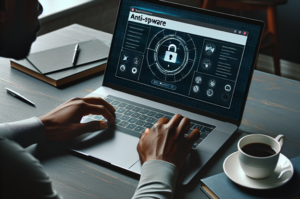
How to Find Bugs That Are Living in Your House
Inspection approaches for physical examination
Checking your house thoroughly through physical inspection is one of the important steps to detect whether any hidden device has been placed in your home. For instance, inspect areas to which those newly-forged keys would open and see if there are any changes in their status for signs of an entry.
Checking Common Hiding Spots
Whether we are talking about hiding cameras or microphones, by far the best place to hide a spy device is alongside other devices — and most homes have innumerable hidden spots when it comes to things like electrical outlets, light switches and smoke detectors. Check these areas carefully for abnormal alterations.
Examining Electricity Outlets and Fittings
Highly Advanced Surveillance can be disguised in wall outlets or lights. Check for changes in anything that has been tampered with, such as unscrewed screws or switch plates that have taken up different positions.
Leveraging Technology
Tech-driven surveillance detection works well, coupled with physical inspections too. You can do especially well with RF detectors and bug sweep tools.
RF detectors and bug Sweep equipment.
RF Detectors Diverse radio frequencies are emitted by covert devices that trap the location of those gadgets, and RF detectors could assist in detecting these. Secure a family member or friend with experience in IT to conduct probably sweeps of your home for unwanted transmitting devices
Electronics Anti-Spyware Software
There are many things you can do to combat userspace spy tools including: of course, installing anti-spyware software on all your devices, and this will help detect any malware that may have been used against them.
Listening bugs and wiretaps
Listening bugs and wiretaps are undetectable devices intended to listen in on your conversations. They are usually very tiny, sometimes masquerading themselves as objects like pens or hidden cameras which makes them very hard to spot.
Wire-free models, on the other hand, can broadcast audio signals with a rf frequency which may potentially be recorded by unauthorized individuals. This unsanctioned snooping is potentially a huge privacy issue, particularly if you have wireless devices in your household.
Listening devices and bugging devices may be hard to find in your house, but they definitely can be detected if you are using equipment that is designed to detect such intrusions. Many other ways and tools can also detect these hidden spy devices to confirm the peace of mind.
It is important to keep a safe environment, and knowing how to operate listening bugs or audio bugs will help you protect your privacy.
Enjoy the help of a professional and with caution!
When to Hire an Expert
If you think your home is bugged, and are unable to find the devices within your own investigating skills, it may be time to hire a private investigator. These experts perform a deep bug sweep of your place and not leaving any stone unturned.
Privacy Laws and Legal Considerations
Legal Implications — Understanding what we can and cannot shoot is important as well. This is illegal in much of the world, and being aware of your rights will allow you to take actions if you find out that there are hidden devices in your own home.
Conclusion
Being proactive about threats is necessary to safeguard your privacy. With regular inspections and use of handy technological tools in combination with the awareness to note strange behaviors, your personal space will eventually be restored into something only you have control over.
FAQs
Can I Find The Bugs On My Own?
Can you find all the bugs yourself Yes, using RF detectors and conducting rigorous physicals will detect many. But for full sweeps, especially.
What do I do if I find a bug?
If you feel that a bug has been located, do not touch it. Call the police or a licensed private investigator to deal with the case in a legal and safe manner.
Can You Legally Bug a House?
Where to Bug A House Illegally Except for enforcement of law with a proper jurisdictional warrant.
How Frequently Should I Revisit My Bugs?
We recommend running regular checks especially if you know that someone might be monitoring other websites of yours. Performing inspections every few months to ensure your home is safe, can maintain a safe living environment.
You just need to know how to adopt these strategies in order to keep your living quarters safe from violations of privacy.
Share this article
Subscribe
Latest News


How to Connect Your Google Home Device to a New Wi-Fi Network

How to Reset Your Carbon Monoxide Alarm and Stop the Beeping


DJI Mini 3 vs Mini 3 Pro: Which Drone Should You Choose?
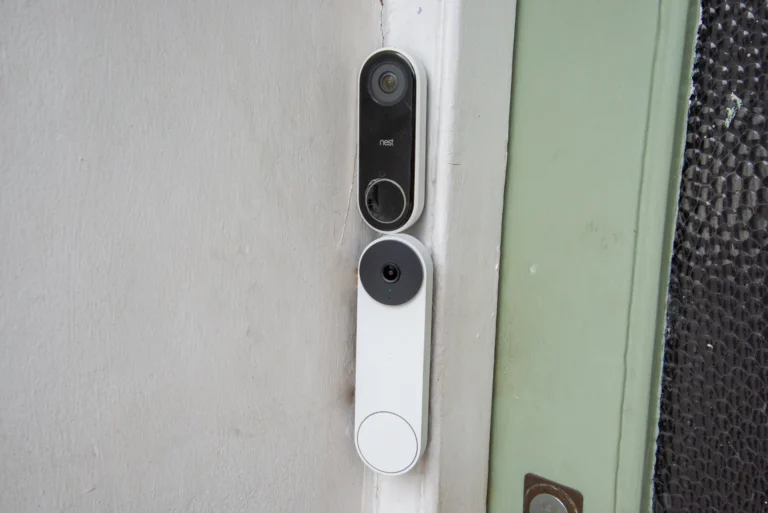
The Best Video Doorbell Cameras of 2024: Top Picks & Reviews
Featured Categories
More News

Do Smart Plugs Really Help Save Energy? Discover Their Potential!

How to Connect Your Google Home Device to a New Wi-Fi Network

How to Reset Your Carbon Monoxide Alarm and Stop the Beeping


DJI Mini 3 vs Mini 3 Pro: Which Drone Should You Choose?
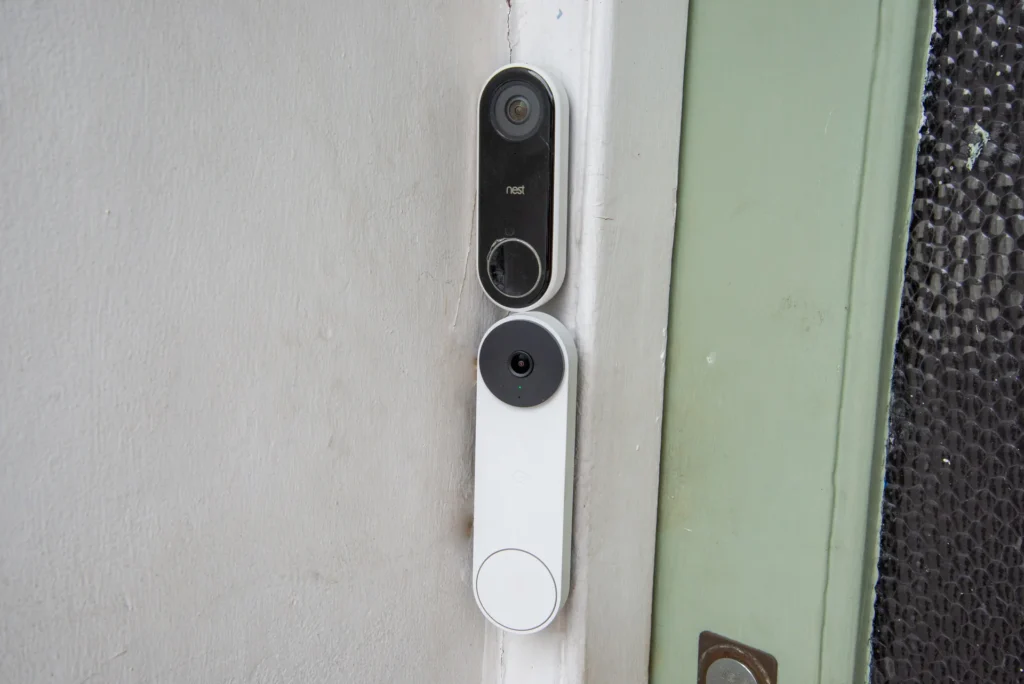
The Best Video Doorbell Cameras of 2024: Top Picks & Reviews
